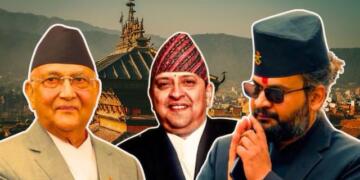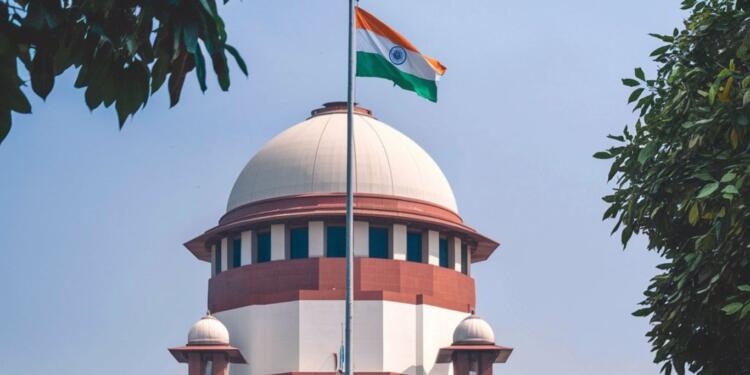In a significant legal development, the apex Court of India has put a temporary halt to the registration of new suits related to places of worship, marking a crucial intervention in a sensitive legal and social matter. A three-member bench headed by Chief Justice Sanjiv Khanna, comprising Justices Sanjay Kumar and K V Viswanathan, delivered an essential order on December 12 on a cluster of Public Interest Litigations (PILs) challenging the Places of Worship (Special Provisions) Act of 1991.
The court’s directive comes in the wake of a number of ongoing legal cases pertaining to religious sites. For instance, there are cases like Gyanvapi temple site dispute in Varanasi, Krishna Janmabhoomi religious site dispute in Mathura, and Hari Har temple dispute in Sambhal, where so-called Masjids were illegally constructed by demolishing ancient Hindu temples. The Hindu petitioners have sought permission for devotees to offer prayers.
Chief Justice Sanjiv Khanna said that they want to hear the parties elaborately in view of the 2019 Ramajanmabhoomi judgment. The court has categorically directed that no further civil suits should be registered till the next date of hearing. The bench further directed that in the pending suits, courts should not pass any effective interim or final orders.
The petitions, led by a BJP leader and advocate, Ashwini Kumar Upadhyay, challenge the constitutional validity of the 1991 law. The petitioners argue that the Act freezes the status of religious sites as they existed on August 15, 1947, thus preventing Hindus from “reclaiming” places of worship that they claim were invaded by Muslim rulers and British colonialists.
The court gave the Union government four weeks to file its counter-affidavit and asked Solicitor General Tushar Mehta for time to respond to the petitions. Senior advocate Raju Ramachandran pointed out that 18 suits concerning 10 religious places are currently pending.
Muslim organizations, including the All India Muslim Personal Law Board and Jamiat Ulama-i-Hind, have responded to the petitions by arguing that they pose a threat to the principles of fraternity and secularism in the Constitution. They argue that the 1991 Act preserves the religious character of places of worship and thus protects the basic structure of the Constitution.
Noted academician Prof. Faizan Mustafa said that the intervention of the Supreme Court was necessary, as the delay in hearing the challenge has emboldened the lower courts to disregard the provisions of the Act. He further emphasized that the government is duty-bound to defend parliamentary laws, and the court must approach the challenge with a presumption of the Act’s constitutionality.
The Supreme Court’s careful balancing act reflects the multiple complexities of legal, historical, and social dimensions around India’s religious sites, sending the message that judicially handling this sensitive matter will not be light-handed.
The Places of Worship (Special Provisions) Act of 1991
The Places of Worship (Special Provisions) Act of 1991 is an important piece of legislation enacted to ensure that places of worship retain their religious character as of August 15, 1947-the date of India’s independence. The Act simply prohibits converting or altering the religious status of any place of worship and forbids legal proceedings for the purpose of seeking such change. It was enacted with the objective of preventing communal tensions and preserving the secular fabric of India by freezing the religious status of worship sites at the time of independence.
The law has effectively stopped Hindus, Muslims, and other religious groups from filing suits to reclaim or change the religious character of places of worship, except for the Ayodhya Ram Janmabhoomi-Babri Masjid dispute, which was already in litigation. Since its enactment, the Act has remained unaltered and has not been amended multiple times. This Supreme Court case is largely concerned with the constitutional validity of the Act’s main provisions, Sections 3 and 4, which safeguard the religious character of places of worship.























